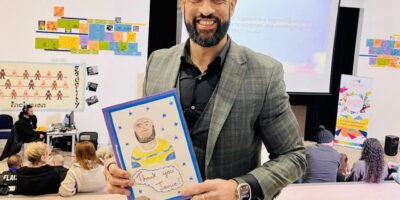By Adele Lowery and Mia Sneyd
Oracy refers to the ability to communicate effectively through speech. It involves using language to express thoughts, ideas, and feelings, and to interact with others in a way that is clear, coherent, and appropriate.
Oracy is particularly important in the wake of the pandemic, teachers are witnessing gaps in some students’ capabilities to work as a team and communicate effectively, from early years to graduate level. This has therefore placed more weight on teaching oracy and our responsibility to provide students with enough opportunities to strengthen their spoken language skills in order to communicate, think critically, succeed academically and socially, as well as prepare them for their future careers. Labour leader Keir Starmer says it is ‘key to doing well in a job interview, persuading a business to give you a refund, telling your friend something awkward. Oracy is a skill that can and must be taught.’
Many argue that oracy is already included in the ‘Speaking and Listening’ part of the curriculum, however oracy is much more than simply being able to put your hand up and answer a question. Instead it is better described as a set of skills, including physical, linguistic, and social and emotional abilities. It is incredibly important in schools for several reasons:
- Communication Skills: oracy helps students develop strong communication skills, which are essential for success in both academic and professional settings. Being able to express ideas clearly, engage in meaningful discussions, and articulate thoughts effectively are crucial skills in virtually every aspect of life.
- Critical Thinking: Through oracy, students learn to think critically about information and ideas. By engaging in discussions, debates, and presentations, they learn to analyse different perspectives, evaluate evidence, and form their own opinions.
- Confidence Building: oracy provides opportunities for students to build confidence in expressing themselves in front of others. Public speaking can be intimidating for many people, but with practice and support, students can develop the confidence to speak up and share their ideas.
- Social Skills: oracy fosters the development of social skills such as active listening, empathy, and collaboration. Through discussions and group activities, students learn to respect others’ viewpoints, communicate respectfully, and work effectively with their peers.
- Academic Achievement: Strong oral communication skills are closely linked to academic success. Students who can express themselves clearly are better able to participate in class discussions, comprehend complex material, and effectively communicate their understanding in assessments and presentations.
- Preparation for Future Careers: In today’s globalised and interconnected world, effective communication skills are highly valued by employers. Whether in a job interview, a business meeting, or a presentation, the ability to communicate orally with clarity and confidence can significantly enhance career prospects.
- Cultural and Linguistic Development: oracy supports the development of language skills and promotes appreciation for diverse linguistic and cultural perspectives. By engaging in conversations with classmates from different backgrounds, students broaden their understanding of language and culture.
In summary, oracy plays a vital role in schools by enhancing communication skills, fostering critical thinking, building confidence, promoting social skills, facilitating academic achievement, preparing students for future careers, and enriching cultural and linguistic development. Schools should therefore prioritise opportunities for students to develop their oral communication skills through various activities and experiences.













